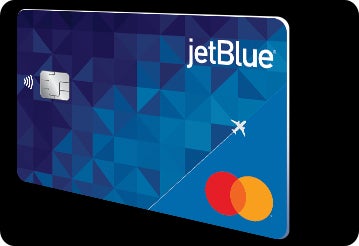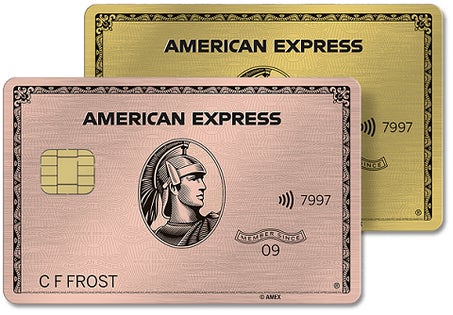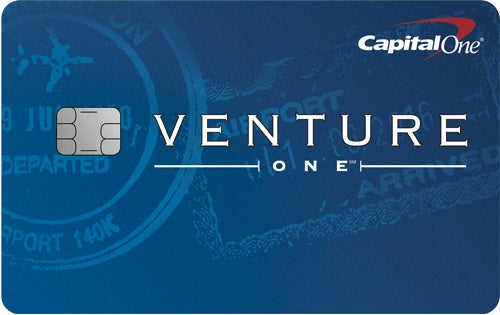- Intro Offer
-
10,000 points Earn 10,000 bonus points after spending $1,000 on purchases in the first 90 days
- Annual fee
- $0
- APR
- 20.99%, 24.99% or 29.99% Variable
- Recommended Credit A credit score is used to indicate an applicant’s credit worthiness and may provide guidance about account eligibility. It does not necessarily guarantee approval for any financial product.
-
670 – 739
Good
- Rewards rate
-
1x – 3x 3X points on eligible JetBlue purchases; 2X points at eligible restaurants and grocery stores; 1X points on all other purchases
The JetBlue Card from Barclays is a great way for JetBlue loyalists to earn more points on JetBlue flights while also turning their everyday restaurant and grocery spending into future travel.
With no annual fee, the JetBlue Card doesn’t offer the same perks that more expensive airline rewards credit cards offer -- think free checked bags and lounge access -- but its reward rates and categories are better than average for an airline co-branded card. The welcome offer, while not the most lucrative out there, provides a nice stash of points and isn’t too difficult to earn.
If JetBlue is your preferred airline, this card is a good way to earn some extra points for your next flight. But travelers who don’t primarily fly with the airline might benefit from a generic travel credit card with better rewards rates or more flexible redemption options. And if you want higher-end perks like free checked bags, upgrades or lounge access, a premium travel credit card with an annual fee -- from JetBlue or another brand -- may be a better fit.
Annual fee
No-annual-fee airline credit cards like the JetBlue Card are a good introduction to co-branded rewards cards. You can get a feel for an airline’s rewards program without worrying about earning enough to offset the annual fee.
However, the additional benefits of a card like this are limited. You don’t get free checked bags, annual credits, lounge access, upgrades or many other perks. Mid- and premium-tier travel cards with annual fees typically have some combination of those benefits and can often pay for themselves after a few trips.
Welcome bonus
The JetBlue Card offers 10,000 bonus points after spending $1,000 on purchases in the first 90 days of card ownership. We value JetBlue points at 1.3 cents/point, so this welcome bonus would be worth about $130, which is average for a no-annual-fee-card. But you can definitely find higher bonuses or lower spending thresholds from similar no-annual-fee travel credit cards.
Rewards and redemption
Most airline credit cards offer 2x points or miles on spending with the airline, so the JetBlue Card’s 3x points on JetBlue purchases is a step above the competition. It also offers 2x JetBlue points on restaurants and eligible grocery stores, whereas most other co-branded airline cards only offer one additional category or none at all. You also earn 1x points on all other purchases.
Outside of JetBlue purchases, this card doesn’t have the most competitive rewards rate. Other no-annual-fee cash-back cards, like the Chase Freedom Unlimited® or the Blue Cash Everyday® Card from American Express*, offer higher rewards rates on restaurants and groceries. Flat cash-back cards, like the Wells Fargo Active Cash® Card, offer 2% cash rewards back on purchases.
Redeeming your JetBlue points is also less flexible than with a cash-back card or non-airline-specific travel rewards card -- you can only redeem them for flights with JetBlue or Hawaiian Airlines, one of JetBlue’s partners.
However, since most no-annual-fee credit cards don’t let you transfer points directly to airlines like JetBlue, so it might be worth taking a slightly lower earnings rate if you want to earn JetBlue TrueBlue points specifically.
Points values
As with all airline co-branded cards, you earn the rewards currency of the airline. In this case, that’s JetBlue’s TrueBlue points. TrueBlue points can’t be transferred to other rewards programs, but you can pool them with another TrueBlue member or redeem them for select flights on Hawaiian Airlines. This makes them much less versatile than rewards currencies like Chase Ultimate Rewards points or American Express Membership Rewards points, which can be transferred to multiple rewards programs at a 1:1 ratio (with a few rare exceptions). However, you’ll typically need to have one of the issuer’s premium (read: annual fee) travel cards in order to take advantage of the full list of transfer partners.
To determine the value of JetBlue points, we looked at four different round-trip flights at both peak times (late November) and off-peak times (late February). We divided the cash cost of the flight by the points cost of the flight to determine the dollar value per point of that flight. We then took the average cents-per-point value of those eight sample flights to find the average value of JetBlue points.
Here are the sample flights used in this calculation:
| Route (round-trip) | Dates | Cost of ticket in dollars | Cost of ticket in points | Cents/points |
| JFK-LAX | 11/20/23-11/27/23 | $603 | 44,700 | 1.35 |
| JFK-LAX | 2/20/23-2/27/23 | $424 | 28,800 | 1.47 |
| JFK-DTW | 11/20/23-11/27/23 | $463 | 37,500 | 1.23 |
| JFK-DTW | 2/20/23-2/27/23 | $239 | 14,900 | 1.6 |
| SFO-MIA | 11/20/23-11/27/23 | $1,328 | 108,300 | 1.23 |
| SFO-MIA | 2/20/23-2/27/23 | $1,019 | 90,300 | 1.13 |
| SEA-RDU | 11/20/23-11/27/23 | $1,145 | 102,000 | 1.12 |
| SEA-RDU | 2/20/23-2/27/23 | $396 | 25,200 | 1.57 |
| Average value | 1.33 |
We found JetBlue points to have a value of roughly 1.3 cents in our calculations. Considering there’s usually a fuel surcharge or security fee added when redeeming points for reward flights, the value will likely be slightly lower in practice.
You can also redeem TrueBlue points for JetBlue vacation packages, which include a flight, hotel, and car rental or Hawaiian Airlines flights.
Additional perks
You get a 50% discount on inflight cocktail and food purchases with the JetBlue Card, which is valuable if you tend to get hungry at cruising altitude.
There’s a 0% introductory APR on balance transfers for the first 12 billing cycles following each balance transfer that posts to your account within 45 days of account opening (20.99%, 24.99% or 29.99% variable APR thereafter), making this a serviceable -- but far from the best -- balance transfer card in a pinch.
You also don’t have to worry about a foreign transaction fee when traveling abroad.
Aside from those benefits, this is a no-frills, no-annual-fee credit card. If you’re looking for free checked bags or annual credits, see some of the comparable cards below.
Comparable cards
JetBlue Plus Card
A direct upgrade to the JetBlue card, the JetBlue Plus card carries a $99 annual fee and earns 6x points on JetBlue purchases, 2x points on restaurant and grocery stores and 1x points on everything else. There’s also a 40,000-point bonus offer after spending $1,000 and paying the annual fee in full in the first 90 days.
This card has many of the same perks as the JetBlue card, plus a few extras. You’ll get 10% of your points back when you redeem them for a JetBlue operated rewards flight, an annual $100 statement credit on a JetBlue vacation package of $100, a free checked bag for you and up to three companions for each flight, access to Mosaic benefits when you spend $50,000 a year on the card and more.
If you’re a JetBlue loyalist and willing to pay an annual fee, the JetBlue Plus is an excellent option to consider.
American Express® Gold Card*
If you’re looking to earn travel rewards from restaurants, grocery and travel spending, the Gold Card from American Express is the best option -- as long as you can offset the hefty $250 annual fee (see rates and fees) with rewards and other card perks. You’ll earn 4x Membership Rewards points at restaurants (including takeout and delivery in the U.S.), 4x points at U.S. supermarkets (on up to $25,000 per calendar year in purchases, then 1X), 3x points on flights booked directly with airlines or Amex travel and 1x points on other purchases. You can also earn a 60,000-point introductory offer after spending $6,000 on eligible purchases within the first six months of card membership. You can transfer your points to 20 airline or hotel partners, giving you more flexibility than an airline-specific card.
For more information, see our full review of the American Express Gold Card.
How JetBlue Card compares to other cards
FAQs
Up to seven TrueBlue members can create a Points Pool, in which each member automatically contributes 100% of their points to the pool. Pool members can only be in one Pool at a time, and only the Pool Leader (who must be 21 or older) can redeem points or nominate others to redeem points.
A co-branded credit card means that the card issuer -- in this case, Barclays -- has partnered with a specific brand to issue a card -- in this case, JetBlue. The distinction is important since cardholders are earning a rewards currency within the brand’s rewards program, instead of through the issuer or bank.
By contrast, if a non co-branded card, such as the American Express Gold Card, would earn points in the issuer’s own currency -- in this case, American Express Membership Rewards points -- that might be transferable to multiple partner airlines and hotels (depending on the issuer’s rules).
The only JetBlue co-branded cards are the no-annual-fee JetBlue Card and the JetBlue Plus Card, which carries a $99 annual fee. JetBlue’s card offerings are slimmer than some other airlines (Delta, United, Southwest, etc.) which offer three or four different cards.
But, you don’t necessarily need a JetBlue co-branded card to earn JetBlue points. JetBlue is a transfer partner of Chase Ultimate Rewards, AMEX Membership Rewards and Citi ThankYou Rewards, meaning you can transfer points from certain Chase, Amex and Citi cards to JetBlue (exact rates and participating cards depends on the specific issuer’s rules).
For rates and fees of the American Express Gold Card, click here.
*All information about the JetBlue Card, American Express Gold Card, Blue Cash Everyday Card from American Express, Capital One VentureOne Rewards Credit Card, and the JetBlue Plus Card has been collected independently by CNET and has not been reviewed by the issuer.
The editorial content on this page is based solely on objective, independent assessments by our writers and is not influenced by advertising or partnerships. It has not been provided or commissioned by any third party. However, we may receive compensation when you click on links to products or services offered by our partners.




